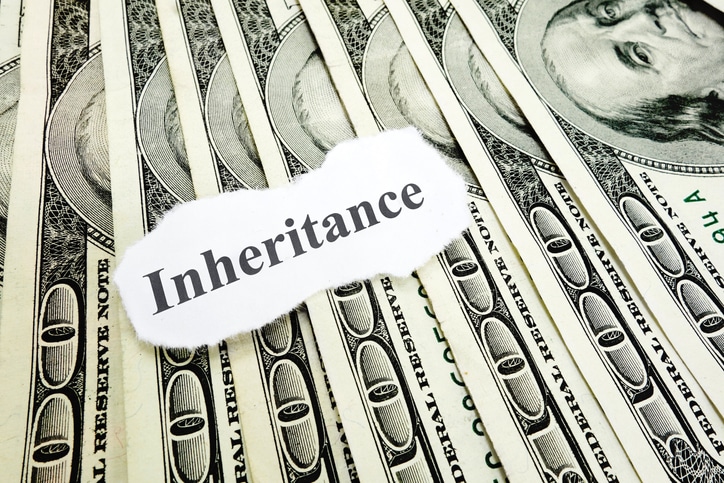One day you may get a phone call that a relative or friend has died, and all or part of their significant wealth will pass on to you. Visions of lifestyle changes run through your head along with the grief of losing a loved one. But are those visions wishful thinking or reality? Any time an inheritance or sudden windfall in wealth happens, it’s essential to step back and re-evaluate your own financial picture. Here we discuss the financial and emotional aspects of an inheritance.
It can take time to process your objectives for managing the inheritance. Stress is guaranteed after losing a family member or friend, which can suppress one’s decision-making abilities. Additionally, settling one’s financial affairs can be a lengthy, complex process involving tax and legal requirements that may be unfamiliar to you. Significant financial decisions should often be delayed for these reasons, as well as giving you time to explore your own finances relative to an inheritance.
How Should My Inheritance Be Used?
An inheritance can be treated as a source to enhance your life and for those you love. However, it pays to give careful thought to how funds should be spent. New-found wealth can make it tempting to make an immediate, extravagant purchase or upgrade your lifestyle. However, those who receive an inheritance often do not realize how quickly an account can be depleted. It’s important to understand what your inheritance can and cannot support to ensure the windfall is used wisely.
Take the time to consider how this money can be used in the most meaningful way. This might include education, housing needs, life enhancement or retirement savings that you were not able to afford previously. While an inheritance might enable short-term purchases or financial decisions, it’s critical to evaluate how it relates to your long-term finances such as saving for retirement. Likewise, be careful about using it on “low-hanging fruit” such as paying off a mortgage or student loan. Some of the easy choices may not always be the best choices.
If you’re unsure of the most strategic way to use the funds, speak with a financial advisor who can help you determine the best path forward.
Should I Invest My Inheritance?
Priority should be given to saving some or all of the funds for the future, such as retirement, as well as an emergency savings fund if you don’t already have one.
Growing your retirement nest egg requires diligent savings, typically over decades of time. Few people find themselves on the perfect path toward achieving their retirement goals. An inheritance could be the jumpstart that you need to catch-up. If it has been a while since you reviewed your financial planning, this is the perfect time to identify how much you have already saved relative to required additional savings before retirement. Your new inheritance might provide the perfect bridge that you need toward your goals.
Investing money for the long-term can significantly increase the value of the inheritance. History has certainly shown the incredible value of investing over the long-term. A fundamental key to achieving financial growth is remaining invested over many years and decades. This allows returns to compound. This means that the growth from years prior allows a larger amount of money to enjoy greater growth over time.
If you are unfamiliar with the world of investing and are not sure how the funds should be invested, a wealth manager can help you make investment decisions that align with your broader finances and objectives.
How Others Might View My Inheritance
If you inherit enough money that you can set aside required retirement savings and upgrade your lifestyle, be prepared for a mixture of reactions from the outside world. Other family members or friends who did not inherit funds may be jealous.
If there’s a difference in the sum inherited among family members, particularly siblings, hopefully these were disclosed and discussed before death. Such differences can easily create rifts in the family. These should be discussed at the onset of learning about your inheritance, particularly if the difference was a surprise to help address any potential family conflicts.
If your financial resources suddenly increase and your friends are aware, they might question if you still have interests in common. Acquaintances might ask you for a loan. One of the best ways to protect yourself is by working with a team of specialized professionals who can help you navigate the inheritance process.
Team of Professionals
The onset of a financial windfall is typically coupled with an onset of financial decisions. Financial professionals can play a crucial and unique role in helping you understand various financial decisions, such as investments, taxes, legal decisions, assets protection, etc. Before hiring anyone, thoroughly research their professional background, follow up with references, and meet with them to ensure that your styles match.
Wealth Management Advisor: A wealth manager can help you with investment management, financial planning, and orchestrating all aspects of your finances so they work in tandem. A Certified Financial PlannerTM (CFP®) can advise you on the interrelation of how current financial decisions might impact your long-term financial goals. Additionally, a CFP® is trained in areas such as taxes, legal matters, asset protection, and more. While you might need a team of professional advisors (such as those below), a wealth manager can act as your financial quarterback, taking the coordination burden off of your shoulders.
CPA: An accountant can help you determine the tax implications of receiving future income from the inheritance and how your own personal taxes could change.
Attorney: An estate planning attorney may be needed to update your will and perhaps create a trust to protect a large inheritance for both yourself and future beneficiaries from creditors or misuse.
Insurance Agent: You may need to consider higher protection of your assets from lawsuits with personal liability insurance, also known as umbrella insurance. Other insurance offerings could also be applicable depending upon your finances and goals.
Daily Money Manager: If you want a professional to help track your day-to-day spending to have a pulse on your daily finances, a daily manager can help. Having these insights can be invaluable to ensure you remain on a healthy financial track.
Security: A security company can install a security system in your home and/or car if a change in your lifestyle creates unwanted attention.
Whether your inheritance significantly changes your assets or simply adds to an already sizable portfolio, working with a true wealth management professional can help you make the most strategic decisions going forward. Smart financial planning can provide you with future security and the opportunity to reach your life goals. Contact SageVest Wealth Management to see how our advisors can help you strategically and wisely plan your future.
References




